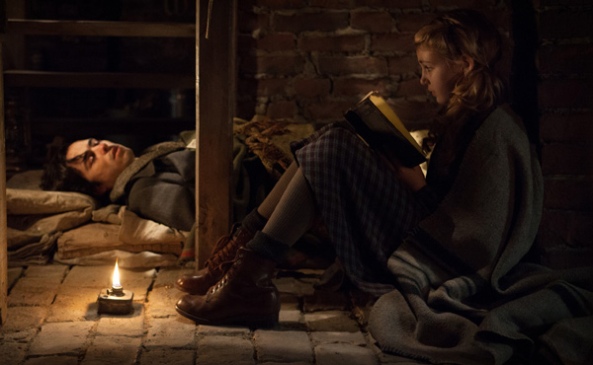A great teacher is capable of showing us that we have to do some of our own learning. The world is bigger than our classroom. “Monsieur Lazhar” is a sweet film about a teacher and students who all have a lot to say, a lot to learn and the truth that we don’t have to be tortured by keeping things to ourselves.
The thing about Bachir Lazhar (the comedian Fellag) is that he’s just a good teacher, not a great one. That alone sets this French Canadian film, one that was nominated for 2011’s Best Foreign Language Oscar, apart from its counterparts. He arranges his students in straight rows after they were already arranged in a communal semi-circle, and he asks them to dictate Balzac, two teaching traits of old fashioned convention that his kids and colleagues both resist.
But these 7th graders need convention in their lives. You see, Lazhar comes to them from Algeria after one student, Simon (Emilien Neron), finds his teacher Martine hanging dead from a rafter inside their classroom. The principal paints the walls and shuffles around the desks, but these kids have baggage now and can’t forget so easily.
The policy of the school seems to be to adhere to the status quo. Talk about your emotions behind closed doors with a school psychologist, act strong and mature, move on, and learn as though nothing has changed. Only Lazhar seems to think these students who are wise beyond their age should still have the opportunity to be kids.
“Monsieur Lazhar” tells a familiar story by turning some of the conventions of the teacher/student coming-of-age drama on its head. This isn’t “Dead Poets Society.” He’s not some liberal, new age teacher. He doesn’t make big scenes or jokes, and he treats his students like children, not adults set on profundity.
Fellag gives Lazhar a pleasant, passive and non-threatening demeanor, one that’s congenial but letting on little of his culture or his past. We learn that he’s actually an Algerian refugee on trial. Like his students, he has baggage he can’t admit or share.
It’s a nuanced dichotomy contained within an interesting and beautiful metaphor. Lazhar gets scolded for slapping a student on the back of the head for disobedience, but he’s told to stay hands off at all times. It reminds me of a great line from a favorite U2 song of mine. “You’ve got to talk without speaking, cry without weeping, scream without raising your voice.” This is a film about learning to overcome those barriers.
3 ½ stars
